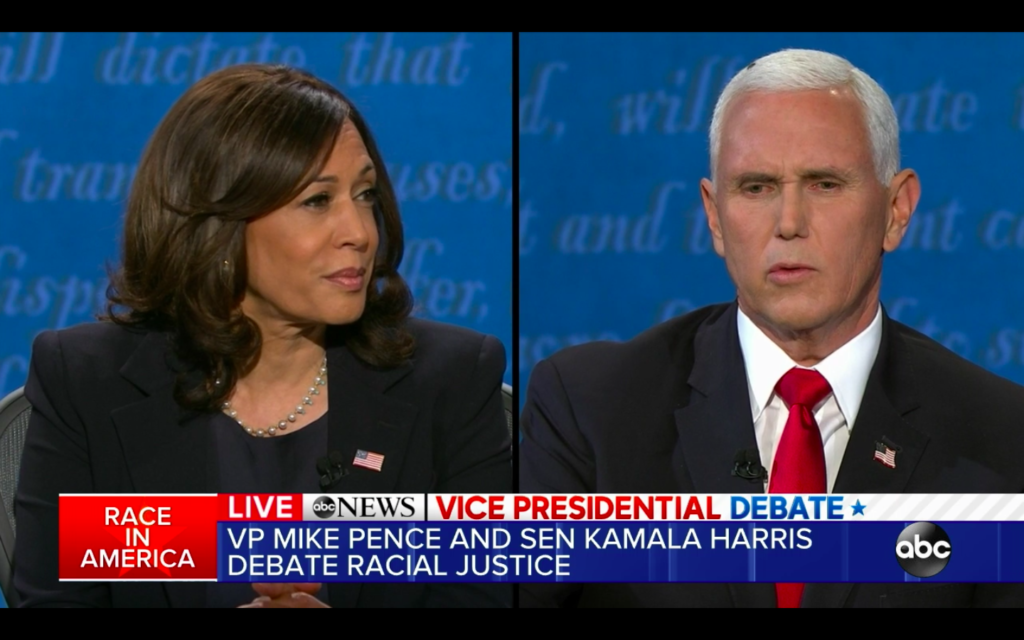
On Wednesday Oct. 7, the Vice Presidential took place in Utah, with the candidates Kamala Harris and Mike Pence.
Like usual, the debate started with the topic of COVID-19 and the candidates either talked about their new plans, or how their plans have worked.
At one point in the debate, a fly landed on top of Pence’s hair and stayed there for over two minutes, causing a Twitter users to have a field day. Biden’s campaign began selling fly swatters after the debate ended.
The debate followed many of the topics of the Presidential debate, including the topic of race. Notably, Pence denied the existence of systematic racism in America.
“The family of Breonna Taylor has our sympathies. But I trust our justice system,” Pence said. “This presumption that you hear from Joe Biden and Kamala Harris that America is systemically racist, and as Joe Biden said, he believes that law enforcement has an implicit bias against minorities, it’s a great insult to the men and women who serve in law enforcement.”
In Harris’ response to moderator Susan Page’s question about Breonna Taylor, she mentioned her participation in peaceful protests after Taylor’s death.
“People around our country of every race, of every age, of every gender, perfect strangers to each other, marched. Shoulder to shoulder, arm in arm, fighting for us to finally achieve that ideal of equal justice under law,” Harris said. “We are never going to condone violence. But we always must fight for the values that we hold dear, including the fight for our ideals.”
Another main topic about the debate was fracking. Fracking is the process of injecting liquid at high pressure into subterranean rocks to for an opening to obtain oil or gas, and this has produced more than a million jobs over the past ten years.
Pence has pointed out that Kamala Harris has talked about stopping fracking overall, but Harris stated that former Vice President Biden’s plan does not stop fracking soon. Both candidates dodged questions throughout the night, not exactly answering Page’s questions.
After watching the debate, it was hard to understand what the Vice-Presidential Debate was really for.
Computer information technology and information security senior Jason Beany added to the topic.
“My general understanding of the debates is that the two parties just fling arguments at each other and ignore each others points,” Beany said.
“I personally have a lot of important, to me, things to do, and it’s hard for me to spend time watching two people debate with points that won’t do anything to sway my viewpoint. I have no real evidence to confirm this, but I believe many people, if not most, will just watch to see their respective political figure ‘win’ the debate through the eyes of one’s biased viewpoint to confirm their political beliefs”.
Professor of communication Sean Kolhoff talked about how this debate really do not matter to swing peoples votes.
“Historically, VP debates do not matter much, and I do not expect this to be an exception. I am sure the base on both sides was really happy with their candidate’s performance. Harris did a pretty good job at addressing ‘the American people,’ so there is a chance they get a bit more of a bump, but the neither side made their ticket look bad, which is a win in itself at this stage,” Kolhoff said.
Kolhoff went to talk about how just because this debate was not impactful on the election, it does not mean it is not important at all.
“Every debate is an opportunity to see political candidates interact with each other. These discussions, and the ones we have after watching, are quite important for the democratic process,” Kolhoff said.
The next Presidential debate will be held on Oct. 22. The deadline to register to vote online is Oct. 19, for the state of Michigan.
